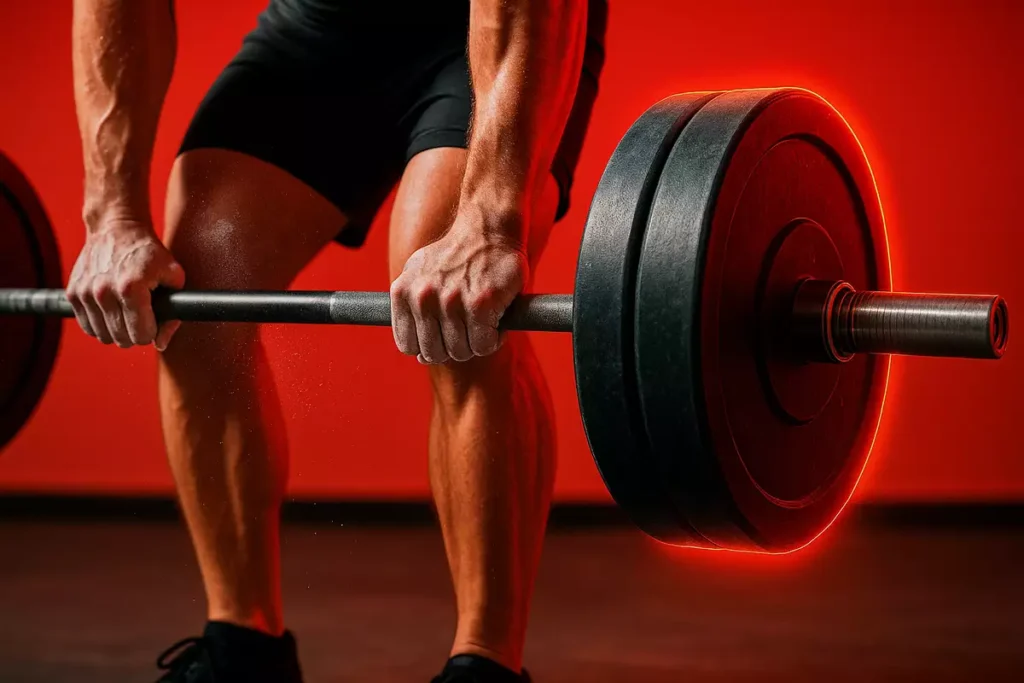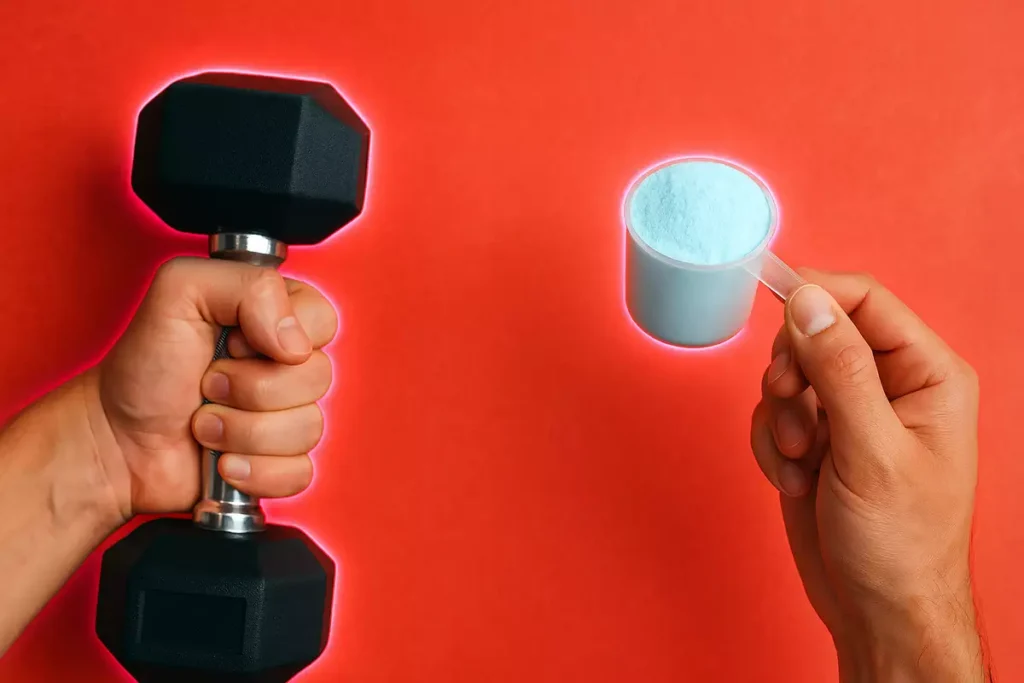Think you must take creatine to build serious muscle? Think again.
While creatine is one of the most researched and effective supplements out there, it’s not a mandatory part of your growth journey. In fact, thousands of lifters — including myself and my clients — have built solid muscle without ever touching a creatine scoop.
If you’re training hard, eating right, and recovering well, you already have the essentials covered. Creatine can enhance your results, but it’s not a shortcut.
Let’s break down how to grow without it — and when (or if) you should add it to your stack.
Table of contents
Is Creatine Necessary for Muscle Growth?
Let’s cut to the chase: No, you don’t need creatine to build muscle.
Creatine helps — absolutely — but it’s not a requirement. I’ve personally bulked up without it, and I’ve seen clients gain solid muscle with nothing but food, iron, and consistency.
Muscle is built through resistance training, progressive overload, enough protein, and proper recovery. Creatine is simply a tool, not a magic switch.
For a breakdown of how creatine actually works and what it does for your body, check out this detailed guide on creatine results over time.
How Muscle Grows Without Creatine

Muscle growth happens when you push your body beyond its comfort zone — and then let it recover and rebuild.
Here’s what actually drives results:
- Progressive overload: Lifting heavier or doing more reps over time
- Nutrition: Eating enough calories and hitting your protein target
- Sleep: Deep, consistent sleep is when the magic happens
- Consistency: No supplement can replace showing up week after week
Back in my early years, I gained over 7 kilos of lean mass in 9 months without using creatine. All I had was basic food, a few dumbbells, and a push/pull/legs split. No fancy pre-workouts. Just discipline.
If you’re someone who’s focused on staying lean during your muscle-building journey, check out this guide on using creatine while cutting — it might surprise you.
Benefits of Creatine — and What You’ll Miss
Now let’s be honest — creatine does offer advantages.
You may experience:
- Improved strength and power output
- Slightly faster recovery between sets
- More muscle fullness due to water retention in the cells
- A performance edge in high-intensity training
When I later added creatine monohydrate into my stack, I noticed better performance during high-rep leg days and an extra rep or two on my big lifts.
But even without it, progress was always possible — just maybe not as fast.
If you’re unsure whether to go with regular or micronized creatine, here’s a quick comparison: Micronized vs. Regular Creatine.
Also, if you’re stacking with casein, you might want to explore the synergy explained in this article: Casein and Creatine Stack Benefits.
Top Alternatives to Creatine for Muscle Gain

If you’re not using creatine, don’t worry — you’ve still got powerful tools at your disposal.
My top go-to alternatives include:
- Whey protein — convenient and effective
- Beta-alanine — helps buffer lactic acid for endurance
- EAA or BCAA — especially if training fasted
- Whole foods first — lean meats, eggs, oats, nuts, and greens
- Water — lots of it, especially with high-protein diets
One of my clients, Carlos from Spain, had tried creatine before but felt bloated. We skipped it and focused on better macro balance. In just 12 weeks, his chest and shoulders visibly improved — no creatine, no problem.
If you’re considering taking creatine but dislike the taste, here’s a great breakdown of mixing creatine with juice — including the pros, cons, and timing.
Real-World Example: Training Without Creatine
Liam, a 22-year-old beginner from New Zealand, didn’t want to use any supplements.
No problem.
We focused on:
- 3 full-body workouts per week
- 1.8g protein per kg of bodyweight
- Tracking progress with photos and strength numbers
He gained over 6.5 kg of lean muscle in six months — just from lifting, eating, and sleeping better.
The truth is, creatine won’t help if your basics aren’t dialed in.
But once you have a consistent system, adding creatine can be the cherry on top. It’s even been linked to cognitive benefits — especially in stressful or mentally demanding routines. Learn more about that here.
When to Consider Adding Creatine Later

I usually recommend creatine when someone:
- Hits a plateau and needs a strength boost
- Starts training at a higher frequency or intensity
- Wants better gym performance (especially athletes)
- Has already built consistency with food, sleep, and workouts
If you’re still skipping meals or missing workouts, creatine won’t fix that. Build a solid foundation first.
One last tip — avoid stacking creatine with caffeine unless you understand how they interact. Some people thrive on the combo, while others don’t. Here’s a guide to help you figure it out: Creatine and Caffeine — Can You Stack Them?
Final Thoughts: Creatine Optional, Discipline Required
If you’re wondering whether you can build muscle without creatine — you absolutely can.
But it takes work.
Creatine is useful, yes. But it’s not the reason someone’s making gains. Effort, recovery, and consistency are.
I’ve built muscle both with and without creatine — and I’ve coached dozens of people who chose to skip it entirely.
The key is showing up, eating right, training smart, and trusting the process.
Supplements are just that — supplements.
You are the main factor.
Let’s keep growing.



Leave a Reply